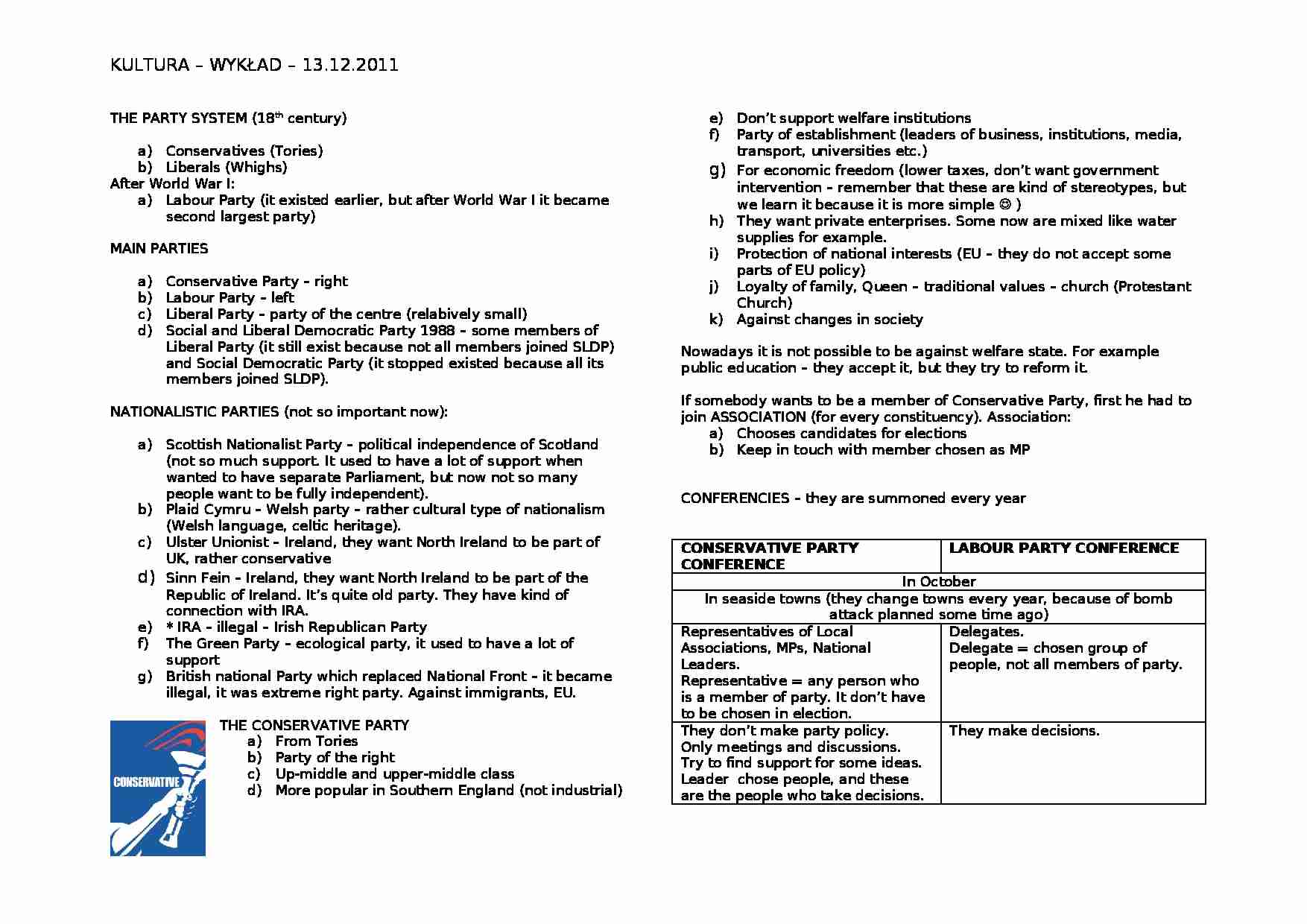To tylko jedna z 2 stron tej notatki. Zaloguj się aby zobaczyć ten dokument.
Zobacz
całą notatkę


THE PARTY SYSTEM (18th century)
Conservatives (Tories)
Liberals (Whighs)
After World War I:
Labour Party (it existed earlier, but after World War I it became second largest party)
MAIN PARTIES
Conservative Party - right
Labour Party - left
Liberal Party - party of the centre (relabively small)
Social and Liberal Democratic Party 1988 - some members of Liberal Party (it still exist because not all members joined SLDP) and Social Democratic Party (it stopped existed because all its members joined SLDP).
NATIONALISTIC PARTIES (not so important now):
Scottish Nationalist Party - political independence of Scotland (not so much support. It used to have a lot of support when wanted to have separate Parliament, but now not so many people want to be fully independent).
Plaid Cymru - Welsh party - rather cultural type of nationalism (Welsh language, celtic heritage).
Ulster Unionist - Ireland, they want North Ireland to be part of UK, rather conservative
Sinn Fein - Ireland, they want North Ireland to be part of the Republic of Ireland. It's quite old party. They have kind of connection with IRA.
* IRA - illegal - Irish Republican Party
The Green Party - ecological party, it used to have a lot of support
British national Party which replaced National Front - it became illegal, it was extreme right party. Against immigrants, EU.
THE CONSERVATIVE PARTY
From Tories
Party of the right
Up-middle and upper-middle class
More popular in Southern England (not industrial)
Don't support welfare institutions
Party of establishment (leaders of business, institutions, media, transport, universities etc.)
For economic freedom (lower taxes, don't want government intervention - remember that these are kind of stereotypes, but we learn it because it is more simple )
They want private enterprises. Some now are mixed like water supplies for example.
Protection of national interests (EU - they do not accept some parts of EU policy)
Loyalty of family, Queen - traditional values - church (Protestant Church)
Against changes in society
Nowadays it is not possible to be against welfare state. For example public education - they accept it, but they try to reform it. If somebody wants to be a member of Conservative Party, first he had to join ASSOCIATION (for every constituency). Association:
Chooses candidates for elections
Keep in touch with member chosen as MP
... zobacz całą notatkę




Komentarze użytkowników (0)